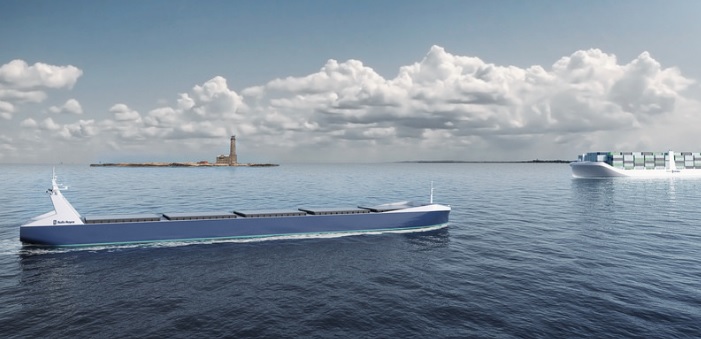Research and innovation bring the possibility of autonomy closer to realization and subsequently unmanned transports are about to enter the shipping industry. While, remotely operated and autonomous shipping projects provide unique opportunities to develop pioneering solutions, they also raise some legal as well as liability issues that need to be resolved.
Autonomous shipping at a glance
An unmanned vessel can be both remote controlled or fully automated. The first crewless vessel may be in service by the end of the decade. Most likely, we will see automated technologies with a reduced number of crew on board and for certain manoeuvres.
Important Dates:
- Mar 2015 – Jun 2017: The Advanced Autonomous Waterborne Applications (AAWA) project was backed by the Finnish Government with key players such as Rolls-Royce and FinnFerries
- August 2015: EU-sponsored research project MUNIN (Maritime Unmanned Navigation through Intelligence in Networks) was completed.
- March 2016: Norway announced the world’s first designated test area for autonomous vessels, and a UK-sponsored project – the Machine Executable Collision Regulations for Marine Autonomous Systems – is looking into regulations and matching navigation algorithms for unmanned ships. In addition, there are a myriad of research and commercial projects.
- June 2017: The Unmanned Cargo Ship Development Alliance was officially formed in Shanghai, featuring maritime industry partners including class organisations, shipyards, equipment manufacturers and designers, aiming to advance autonomous shipping and the delivery of China’s first unmanned cargo vessel by October 2021.
- May 2017: YARA and Kongsberg entered into a partnership to build the world’s first fully electric and autonomous container vessel; “YARA Birkeland”. Operation is planned to start in the latter half of 2018, shipping products between three ports in southern Norway. “YARA Birkeland” will initially operate as a manned vessel but is expected to be capable of performing fully autonomous operations from 2020.
The challenges ahead
Certainly, lack of autonomous shipping knowledge and unforeseen interdependencies may bring challenges with respect to the system design, operation complexity, and environment. Cyber-attacks, connectivity or autonomy assisted accidents are among the challenges as well.
Therefore, for unmanned vessels to become a reality, regulatory framework must be in place. Requirements concerning the person having command of a vessel, sufficient manning, training and proper lookout must be considered in international conventions (SOLAS, STCW, COLREG).
In June 2017, IMO’s Maritime Safety Committee (MSC) agreed to undertake a regulatory scoping exercise to determine the extent of the need to amend the regulatory framework to enable the safe, secure and environmental operation of maritime autonomous surface ships (MASS) within the existing IMO instruments.
IMO Member States and international organizations encouraged to submit proposals and comments to MSC 99 in May 2018. The Comité Maritime International (CMI) is also considering this issue through an International Working Group.
While speaking in the 2018 SMART4SEA Conference, Jason Stefanatos, Senior Research Engineer, DNV GL, noted that the maritime industry is moving rapidly towards digitalization and the increased capacity for transfer of data from ship to shore has enabled remote monitoring of ship functions and operations.
Actions to be taken by industry stakeholders
- Stay up to date with the ongoing industry and government-run projects.
- Address the risks related to new technologies and the internet of things.
- Rely on proper industry standards, certification and classification regimes; verification of safe performance will be crucial.
- Support classification societies in taking an active role in both technical and operational risk aspects of increasingly autonomous vessels.
Relevant documents and links
- UK Marine Industries Alliance – Maritime Autonomous Systems Regulatory Working Group (MASRWG)
- Advanced Autonomous Waterborne Applications Initiative (AAWA)
- Maritime Unmanned Navigation through Intelligence in Networks (MUNIN)
- Norwegian Forum for Autonomous Vessels
- Danish Maritime Authority/Rambøll/Core Advokatfirma: Analysis of regulatory barriers to the use of autonomous ships
- ONE SEA Autonomous Maritime Ecosystem (Finland)
- Centre for Autonomous Marine Operations and Systems (NTNU AMOS), Norwegian University of Science and Technology: Risk management of autonomous marine systems and operations
- Classification societies:
- Lloyd’s Register: Cyber-enabled ships – ShipRight procedure assignment for cyber descriptive notes for autonomous & remote access ships,
- Bureau Veritas: Guidelines for Autonomous Shipping




























































